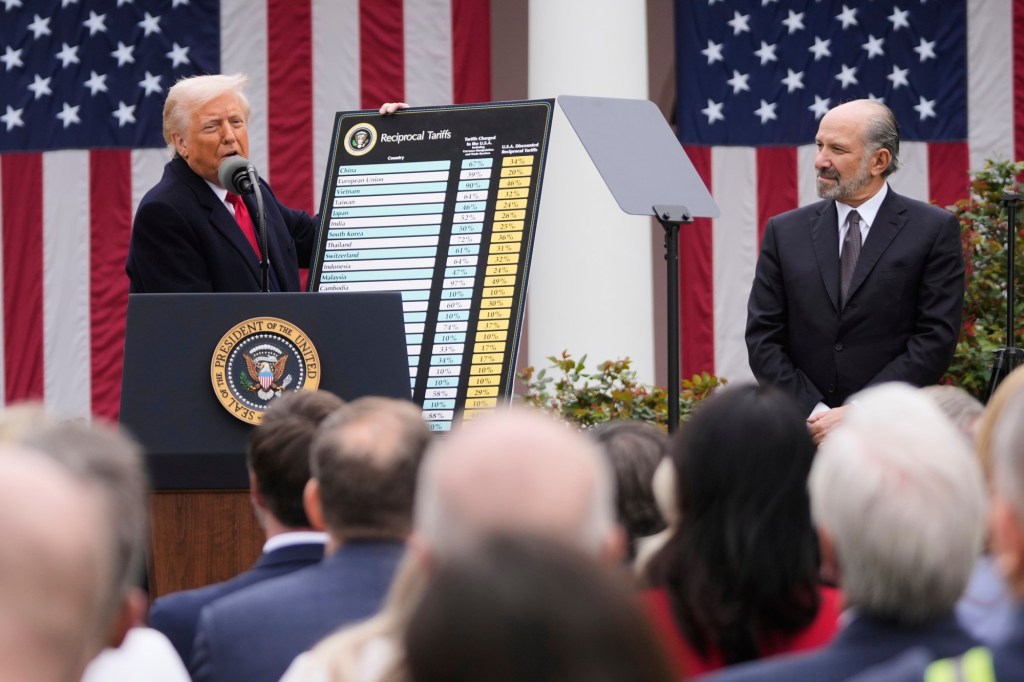
Californians are battling a cost-of-living crisis, largely because our leaders in Sacramento have never met a tax or regulation they didn’t like. Golden State drivers are currently paying $4.90 per gallon, 50% more than the national average, to fill up their vehicles. We have the second-most expensive residential electricity prices in the nation. Our housing costs are the most expensive in the continental United States. And we have the highest marginal state income and sales taxes in the nation.
And now, Washington politics are about to poke another hole in Californians’ pockets.
The Trump administration recently announced its plans to impose tariffs on pharmaceutical products and not just on shipments from geopolitical adversaries like China, but from allies like the United Kingdom.
Tariffs on medicines, which are normally excluded from trade wars, will be particularly damaging for California patients and workers.
While most of the drugs taken by Americans are manufactured here in the United States, many of them include key ingredients sourced from Europe, especially from allies like Ireland, the UK, and Switzerland. About one-third of all active pharmaceutical ingredients (APIs) consumed domestically come from Europe. Ireland alone exported roughly $40 billion worth of pharmaceutical products to the United States in 2023.
As we have already seen, tariffs imposed on imports typically lead to higher prices for consumers. Manufacturers and distributors have little choice but to pass on those costs. Tariffs on medicines will similarly be passed on to people battling heart disease, cancer, diabetes, and other serious conditions.
Patients don’t choose where their treatments come from. If the most effective or only version of a medication is made in Europe, the higher costs from tariffs could mean that people delay filling a prescription or go without it entirely.
Tariffs on medicines will undermine our economy, too. American manufacturers can’t simply flip a switch and source those materials domestically. Building a new pharmaceutical plant can take up to a decade and cost billions of dollars. And in many cases, no U.S. substitute exists.
California plays an outsized role in the biopharmaceutical industry, with more than 16,000 life sciences companies, which support 1.2 million jobs statewide. Multinational companies like Cencora, which operates a plant in Corona, would surely face higher costs. Any disruption to the global supply chain will hit these businesses hard, risking local jobs and threatening Californians’ access to timely treatments.
Historically, Republican and Democratic administrations alike have recognized that medicines are a matter of life and death and shouldn’t be targeted in global trade disputes. Until now, both the United States and the EU have exempted most medicines and medical ingredients from tariffs.
Imposing pharmaceutical tariffs on imports from an adversary like China is one thing. But penalizing trade with our allies when it comes to life-saving medication just doesn’t make sense. It won’t shore up national security. But it will punish American patients and businesses. And taxpayers too, since Medicare and Medicaid will inevitably spend more on drugs as a result.
Hopefully the pro-trade members of California’s congressional delegation, especially its Republicans who have strong ties with the administration, can persuade the White House to spare critical products like medicines from its trade measures.
Ron Nehring is former Chairman of the California Republican Party and served as National Spokesman for Senator Ted Cruz’s presidential campaign.
Originally Published:



